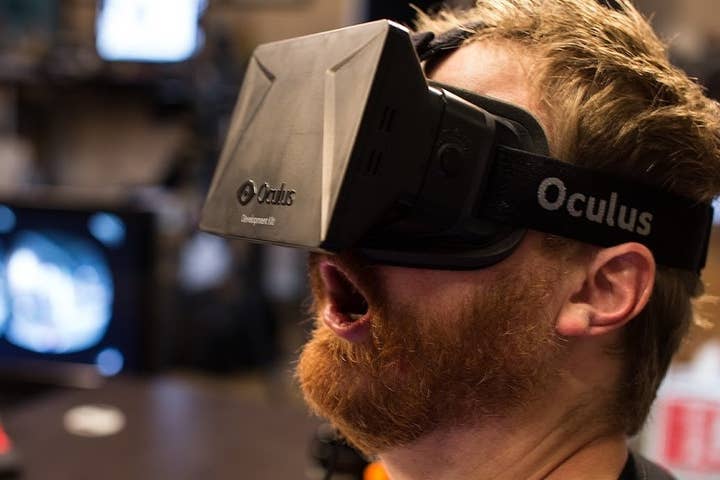Official Oculus store will have comfort ratings, require pre-approval
Firm to take "industry standard" cut on transactions
Oculus CEO Brendan Iribe has spoken about some of the details of the official Rift software store, talking about elements related to curation, costs and suitability.
Speaking to Techcrunch, Iribe confirmed that the store would operate on "a very standard business model". Given that Apple, Google and any number of other marketplaces take a 30 per cent share of all transactions, it seems likely that Oculus will follow suit.
"There's a lot of fees and a lot of engineering that goes into building and managing and maintaining that store," said Iribe. "It doesn't just happen on its own. You actually have to support it. There's all kinds of credit card transaction fees...so we're going to run one in a similar way to how they're run by other companies that work well."
The official store won't be the only place to buy Rift games - Iribe was keen to stress the open source nature of the platform, but everything which is sold on his marketplace will need to pass certain tests for suitability, gaining pre-approval from Oculus staff before it's put on sale. "We are going to monitor the content and make sure that it fits the policy we put up which is this safe and clean environment that everyone can know, and love, and trust just like other popular app stores," Iribe told Techcrucnh. "You're going to need to be approved first."
As part of that process, each game will be given a "comfort rating" in order to give customers an idea of what to expect, not just from the nature of the content in terms of fear or violence, but also in how likely it is to induce motion sickness. With Valve promising zero sickness from its Vive headset, ensuring that customers don't have bad experiences in this regard is likely to be crucial to the success of the store.
"Something can be comfortable from a disorientation standpoint, where it doesn't make me feel bad, it doesn't have crazy locomotion like a roller coaster," explained Iribe, "but if it is really, really super intense, we do want to give people warnings about that. Having bullets fly at you in VR is actually really, really intense and the more real it gets, the more it's going to feel like real life, and you don't really want to be shot at in real life. We've gotten really used to it on the 2D monitor because our brain is saying 'don't worry, don't worry, it's safe.' As soon as you put on VR and your brain's not saying that anymore, it's not necessarily the comfortable experience that it is on a monitor, and we'll have warnings around that."

